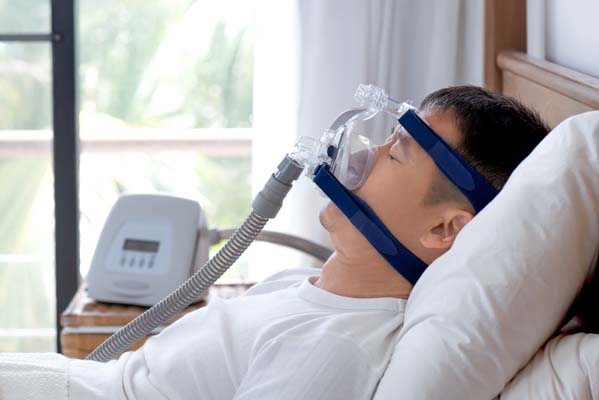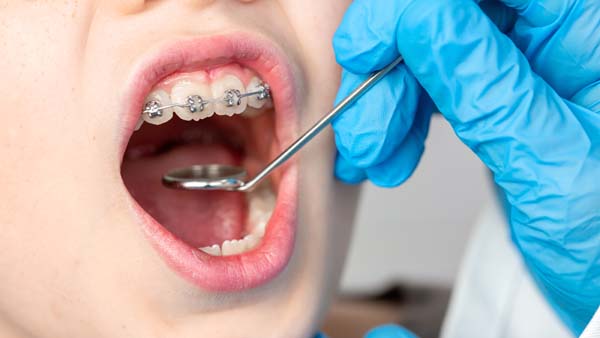Dental Sedation for KidsCamas, WA
For children with a high level of anxiety, those that have quite a bit of treatment to complete, or for those with special needs, sedation dentistry can assist families in ensuring their children have the oral care they need in a comfortable environment free of emotional or psychological trauma. There are many times where children who begin treatment with sedation are able to eventually complete treatment with only the help of nitrous oxide (laughing gas) because they have been able to build their confidence.
Remember that you likely have an influence on how your child perceives the dentist and their upcoming treatment... So if you happen to be a person that “hates going to the dentist” or if you’ve had a traumatic experience with a dentist when you were young - Do your child a solid and don't let your anxiety or misgivings influence their opinion or make them fearful. Stay positive!
There are several types of sedation: Nitrous Oxide, oral conscious sedation, IV sedation, and general anesthesia. For children at Design Dentistry - When indicated, Dr. Rinta offers nitrous oxide.
(Dr. Rinta also has extensive experience in hospital-based dentistry and was formerly the Dental Director at the Providence Portland Child Center... He continues to practice several days a month at Providence hospital and maintains privileges at Providence Portland, St. Vincent, and at the Kaiser surgical center on Interstate. Primarily, Dr. Rinta's time at the hospital is spent treating patients with special needs or who are medically fragile for the Providence Specialty Pediatric Dental Clinic... While Dr. Rinta has the ability to treat patients in a hospital operating room or in our office with a mobile anesthesiologist; He limits this option to special circumstances. Dr. Rinta is always happy to discuss all options and answer any questions you may have.)
Oral Conscious Sedation
Dr. Rinta loves treating Children! Despite their extensive experience treating and sedating pediatric patients, Dr. Rinta feels the Oral sedation of children is best accomplished at a pediatric office where the volume of patients requiring such treatment results in a streamlined, efficient, fun, and ultra-safe process. For this reason, we do not use Oral Sedation with children in our office.
Fortunately, there are several very good pediatric dentists in our community and the surrounding area. Dr. Rinta has worked with several highly skilled pediatric dentists at the hospital over the years... So when he feels a young patient might benefit from the use of Oral (or deeper) Sedation, he knows exactly who to recommend!
Some Oral Sedation Information
- It is extremely important that you follow all guidelines and instructions regarding food and liquids the day prior to, and the day of, your child’s appointment… These will be discussed in detail with you well in advance of your child’s dental treatment.
- On the day of surgery, your child will typically be given a mixture of liquid medications at the office about 30 minutes prior to their treatment. This medicine will help lower their inhibitions and may make them sleepy, although the sedatives are not intended to put your child to sleep. The sedation medicines given may also have a slight amnesia effect. A good surgeon will talk very positively around your child during their appointment so that if they remember anything, it will be a good, happy feeling.
- With all of our pediatric dental partners – a child’s safety is of utmost importance during a sedation appointment. If the sedation guidelines are not followed completely, the appointment will have to be rescheduled.
General Anesthesia (In-Office or Hospital Operating Room)
General anesthesia is a medication-induced state of unconsciousness that results in the total loss of awareness, loss of protective responses/movement, and the elimination of discomfort; allowing the completion of dental treatment in a well-controlled environment. For patients who have failed attempts with oral conscious sedation and have extensive treatment needs, for some children with special needs, for patients who have medical conditions that limit their ability to cooperate, or when it is necessary for the safety of the patient and/or staff; Dr. Rinta may recommend general anesthesia. Depending upon the patient’s medical history, Dr. Rinta may make this complete-sleep option available to you either in our office, or in the hospital.
(Dr. Rinta also has extensive experience in hospital-based dentistry and was formerly the Dental Director at the Providence Portland Child Center... He continues to practice several days a month at Providence hospital and maintains privileges at Providence Portland, St. Vincent hospital, and at the Kaiser surgical center on Interstate. Primarily, Dr. Rinta's time at the hospital is spent treating patients with special needs or who are medically fragile for the Providence Specialty Pediatric Dental Clinic... While Dr. Rinta has the ability to treat patients in a hospital operating room or in our office with a mobile anesthesiologist; He limits this option to special circumstances. Dr. Rinta is always happy to discuss all options and answer any questions you may have.)
For young patients with primary (baby) teeth, surgery is generally 2 hours or less in length. For older patients procedures can be significantly more complicated or time consuming, so surgery times can run much longer and in some cases may be less predictable (this is particularly true when the patient is unable to cooperate for a thorough examination, limiting the doctor’s ability to develop a treatment plan prior to surgery). To ensure optimal safety, Dr. Rinta typically limits surgery time to 7 hours at the hospital and 4 or less in the office. It is also possible that all needed treatment cannot be completed in one visit.
There are several special considerations and pre-operative instructions for this type of visit that will be discussed in detail well in advance. As always, a detailed and accurate medical history is needed. A surgical clearance (a quick physical) must be completed within 30 days of the scheduled surgery by the patient’s primary care physician.
While there is a general flow for general anesthesia appointments, the beginning of the process may be somewhat customized for an individual based on their particular level of cooperation, their medical history, special needs, and/or personal preferences of the patient or anesthesiologist - at least in regard to the use of pre/post-operative medication, when the IV is placed, and how the anesthesia is induced.
During general anesthesia, the patient will be given medications by a skilled anesthesiologist to assist them in falling completely asleep. The patient’s airway and breathing are carefully protected and controlled. The anesthesiologist will be constantly monitoring their progress throughout the dental appointment, selecting the optimal combination of drugs and making any changes to IV medications as required.
Common side effects following dental treatment with general anesthesia include Nausea, sore throat, and nose bleed (the patient is typically intubated through the nasal passage throughout the surgery to control respiration). Serious complications are exceedingly rare, as every precaution is taken to mitigate risk. However, as with any surgery, there are potential risks associated with general anesthesia, some of which are serious, including death. The potential risks must be carefully weighed with the benefits of treatment and the consequences of non-treatment.
It is very important to follow all pre-operative instructions; these are for the patient's safety and failure to do so will result in the cancellation of the appointment. General instructions include, but are not limited to the following:
- Patients under age eighteen must have a parent or legal guardian present at the time of surgery in order to give written consent for anesthesia.
- Do not eat or drink anything after midnight the night before your operation (including water). Likewise, do not eat or drink anything including water, on the day of your operation. Do not chew gum, or suck on candy, of any kind.
- The patient must have a ride to/from surgery, and there must be an adult that accompanies the patient and remains in the office or hospital throughout the visit. Patients may not drive or operate machinery for 24 hours following surgery.
- If the patient develops or has a cold, any other acute illness, or has any changes to their medical status prior to surgery, please call our office.
- Follow the directions given by the surgeon and/or anesthesiologist regarding any current medications and whether or not to take them on the day of surgery.
- Arrive on time. There is a lot of coordination that occurs with providers, the hospital, OR schedules etc. Patients who arrive late may have to have their surgery rescheduled.
Design Dentistry is located at 531 NE Everett St Camas, WA 98607.





